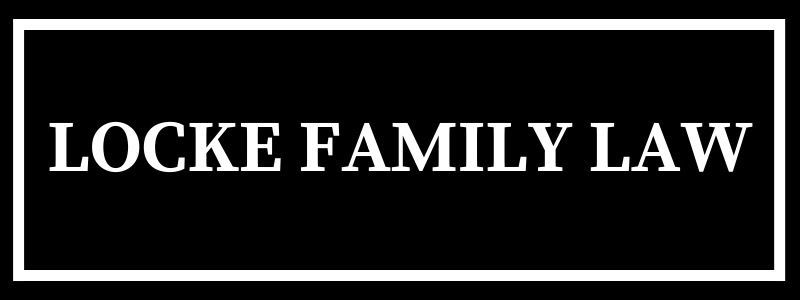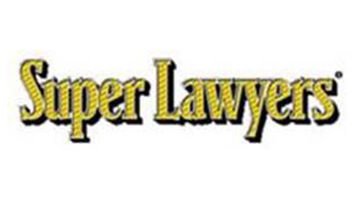6800 Paragon Place, Suite 650, Richmond, VA 23230
Automobile Accident Attorney
Auto accidents can happen in the blink of an eye. Whether it’s someone running a red light or the person behind you following too closely, it’s often too late for you to do anything to avoid the impending collision.
The Commonwealth of Virginia has over 6 million registered drivers. With that many people on the road, accidents are bound to happen. In 2019 alone, there were 827 auto-related deaths in the state. The statistics show that, on average, 180 people per day were injured in a car crash.
Read on to learn more about the causes of these accidents, the legal concepts of automobile liability in Virginia, and the various elements that could affect your claim.
What are the main causes of car accidents?
There are a wide variety of factors that can contribute to an automobile accident, some of which include:
- Distracted Driving
When a driver is distracted, they’re no longer in full control of their vehicle for the very brief moment that their attention is turned elsewhere. Distractions come in many forms, such as screaming kids in the backseat, text messaging, and even changing the radio station. All it takes is a brief lapse in concentration for an accident to occur.
- Impaired Driving
Alcohol and drugs (both prescription and non-prescription) are among the leading causes of auto accidents in Virginia. When intoxicated, the driver’s response time slows dramatically, and they aren’t able to react quickly enough to avoid a collision.
- Speeding/Reckless Driving
We have speed limits on city and highway streets to keep traffic moving at a safe speed. When motorists break the speed limit, it puts everyone in their path at risk as they’re traveling too fast for road conditions.
- Running Red Lights
Another contributing factor to the high amount of accidents in Virginia is when cars try to beat the signal change and wind up running a red light. Signals have different timing, and the yellow lights often vary in length from intersection to intersection. Even a slight miscalculation on the part of the motorist can lead to an accident.
What are the main results of an accident?
If there is such a thing as an “ideal automobile accident,” it’s one where property damage is none-to-minimal, and everyone walks away, shaken but uninjured. However, that’s often not the case. People involved in car accidents can experience:
- Property damage (to their car)
- Short-term injuries
- Permanent disability
- Pain and suffering (both physical and psychological)
- Death
With so much at stake when getting behind the wheel of a car, you must understand your rights, responsibilities, and the elements of the law that could affect your case if an accident were to occur.
Comparative Fault (Negligence) vs. Contributory Fault (Negligence)
When it comes to determining the amount of money you will receive after an auto accident, Virginia abides by a legal concept known as “contributory fault.” This means that if you’re in an accident and the facts determine that you’re partially at fault, you cannot seek any financial restitution from the other party or their insurance company.
Virginia is one of only a handful of states that have contributory fault. The vast majority of other states in the U.S. have what’s known as “comparative negligence.” This means that if you’re 20% at fault in an accident and the jury awards you $100k, you’ll walk away with $80k (after legal fees/etc.)
How is Negligence Determined?
Thanks to Virginia’s extremely tough standard on automobile accident negligence, you need to prove that the other party was responsible for the crash and that your actions did not contribute to the accident in any way.
Determining negligence is easier in some cases than in others. For example, if the other driver is intoxicated or they rear-ended you, proving negligence on their part is usually straightforward. However, if someone runs a red light and hits your car, they might claim that they had the green or yellow light.
To prove the other driver was indeed at fault will require an investigation that can include police reports, light timings, witnesses, and a whole host of additional evidence.
What Should You Do After an Accident Has Occurred?
If safety dictates, it’s essential to take photos of the damages and intersection immediately after the accident. Try to secure as much evidence as possible, including:
- Police reports
- Witness information
- Photos
- Medical reports
- Insurance info
When it comes to giving statements to the insurance company—or signing any documents they present to you—it’s important to be aware that the friendly, smiling insurance adjuster only has the insurance company’s best interests in their mind.
This is why it’s vital to immediately contact an automobile accident attorney after getting into a crash. They know the exact steps you need to take to preserve the evidence to prove that the other driver was indeed 100% at fault. An attorney can also tell you what to say—and more importantly—what not to say to the insurance adjuster.
Locke & Otto Case Results
Car accidents are an unfortunate part of reality. Should you be involved in one, it’s imperative that you know your rights and what you need to do to ensure that you have a strong case for the best chances of getting a settlement.
Richard Locke and Shannon Otto consistently achieve top level case results in auto accident and moving vehicle cases. A few of our settlements that we’ve won for our clients include:
- $2,200,000 verdict in wrongful death case where 37 year old woman was killed in an automobile collision and was survived by her husband and three children.**
- $775,000 settlement for crush injuries to pelvis, leg and arm for fall from group party bike operating with no seat belts and qualifying as a bus.
- $600,000 settlement for woman who fell off golf cart when attendant moved cart. unexpectedly; severe brachial plexus and head (traumatic brain injury) injuries
- $500,000 maximum available insurance settlement for husband and wife in hit and run case where husband died and wife suffered severe injuries; hit and run driver had no insurance.
- $325,000 settlement to male sales person who suffered traumatic brain and neck injuries in rear end collision.
- $300,000 settlement for young female teenager who suffered traumatic brain injury in severe accident with hit and run driver.
- $300,000 maximum insurance recovery for middle-age women with hip and leg crush injuries in car crash.
- $240,000 verdict for client injured in a car collision where her back and neck were injured and she developed chronic pain in her neck and back.
- $230,000 settlement for passenger in car crash where passenger’s neck was injured requiring fusion of vertebrae in her neck.
- $225,000 settlement for 17 year old client who was a passenger in a vehicle where her driver lost control and client’s leg was broken.
- $225,000 settlement for middle aged woman suffering mild traumatic brain injury from rear impact collision.
- $220,000 settlement in automobile case where client was hit head on and had fractured collar bone and broken ribs.**
- $175,000 settlement for passenger in vehicle whose wrist was broken in head on collision.
- $125,000 verdict in Loudoun County for minimum impact collision where male client suffered bulging disks, radiculitis and chronic back pain.
- $100,000 verdict in Fairfax County (maximum insurance coverage was $100,000) for low impact collision where client suffered fibromyalgia and chronic soft tissue neck injury.
If you’ve been in an accident, give us a call today at (804) 285-6253 for a free consultation. Our attorneys will work hard to fight for your rights and the justice that you deserve. You need to focus on getting better; let us take care of the hard work.
**Please note that the results of specific cases reported are not meant to be a prediction or guarantee of any other case. Each case consists of factors unique to that case. Cases listed below reflect more recent case results from approximately the past fifteen years exceeding $100,000.
Locke Family Law represents family law and personal injury clients in the greater Richmond, Virginia metro area, and throughout Henrico County, Chesterfield County, Hanover County, Goochland County, Powhatan County, Colonial Heights, Amelia County, the City of Richmond, Louisa County, Prince George County, New Kent County, King and Queen County, King William County, Charles City County, and many other localities in Virginia.
Location:
6800 Paragon Place, Suite 650, Richmond, VA 23230
Phone: (804) 285-6253
Fax: (804) 545-9400

SEND LOCKE FAMILY LAW A MESSAGE:
We will get back to you as soon as possible.
Please try again later.
All Rights Reserved | Locke Family Law Copyright © 2022 Locke Family Law All rights reserved. Read our Privacy Policy or Disclaimer.







